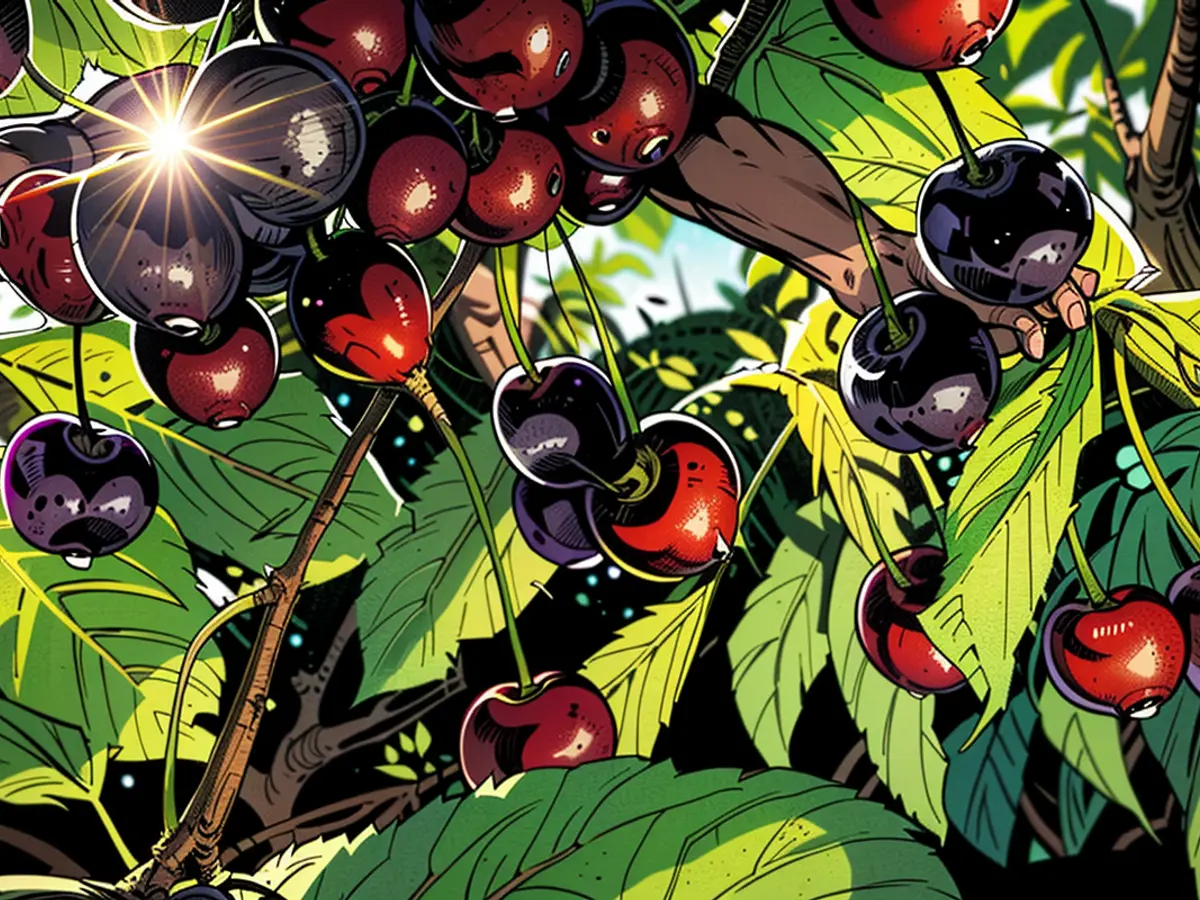obstacle - Eating cherries is less pleasant with Germany
When people don't get along with someone, one can express it with the words: "Eating cherries with this person is not good". New numbers seem to prove that eating cherries with the Germans is not good anymore. In simpler terms: people in Germany consume less fresh and processed cherries than before.
What's going on in the country where Schwarzwälder Kirschtorte, Donauwelle, waffles with hot cherries, or Mon-Chéri pralines are cultural heritage?
For the fourth year in a row, people in Germany have consumed less fresh and processed cherries, as the Federal Agency for Agriculture and Food (BLE) reported at the end of June. The per capita consumption was 1.7 kilograms (April 2022 to March '23), which is half a kilo less than the previous year and a whole kilogram less than five years ago.
According to the BLE in Bonn, reasons for the decline could be extreme weather events and higher sales prices. However, the question could also be raised: Are cherries simply out?
Cherries seem to be less popular
"Cherries are probably outdated and complicated for many consumers," says Thomas Ellrott, a nutrition psychologist at the University of Göttingen. "Outdated, because there have been few hip new cherry recipes since KiBa (also called BaKi), and because many new fruit alternatives are now competing with cherries in the market."
"KiBa" (also known as BaKi) refers to a marbled cherry-banana puree (more precisely, a mix of fruit nectars). It was quite popular in the 90s.
"Cherries are complicated because each one has a pit," says Ellrott. "Whoever has cooked cherry confiture themselves knows how laborious the previous pitting is. A definite disadvantage for this delicious and homegrown fruit."
Among the most popular fruits in Germany, cherries have been lagging behind for a long time. In first place, with 20 kilograms per capita, is the apple. However, there was a minus of more than 5 kg in the last five years.
After apples come bananas (11 kg), table grapes (5.1 kg), strawberries (3.9 kg), and peaches (2.7 kg), with peaches only falling behind the strawberries in the last decade. The per capita consumption (albeit at different levels) is relatively stable for fruits like pears, plums, apricots, raspberries, blackberries, and blackberries.
Are raspberries the new cherries?
For Henryk Flachowsky, head of the Breeding Research Institute for Fruit at the Julius-Kühn-Institute (JKI) in Dresden, the main reason for the declining consumption of cherries is the price. "I believe that cherries are simply too expensive for consumers." The price is significantly higher due to higher labor and energy costs, but also due to frost during blooming and expensive imported cherries.
If the price were lower, there would be more demand, according to Professor Flachowsky. "With fresh fruit and processed fruit, it's all about the price, and people start comparing 'What else can I get instead?'. And often, berry fruit comes into play." This is in contrast to earlier times when it was only available seasonally.
Professor Flachowsky states that certain fruit varieties, particularly blackberries, have gained popularity. In addition, the quality of foreign strawberries, which are offered year-round, has improved. "They taste better today. In the past, there were strawberries that were large and hard and tasted watery."
Schwarzwälder Kirschtorte is no longer the ultimate nonplusultra
What does the leader of the frozen bakery market, "Conditorei Coppenrath & Wiese," mean by the classic Schwarzwälder Kirschtorte in general? Dorothee Reiering-Böggemann, marketing department head, says: "We cannot detect a departure from cherries, on the contrary, our quantities have been consistently stable over the last 25 years."
However, cherries are now distributed among various cakes, pies, sahne Stracciatella, and cheesecakes. Schwarzwälder Kirschtorte used to have a unique selling point, today, for example, "Sahne Stracciatella Kirsch" is quite popular. This variant comes without cherry water and is therefore suitable for the whole family.
Going back to the beginning: The expression "It's not good to eat cherries with (or from) him (or her)" likely goes back to the Middle Ages, when cherries were rather rare and expensive.
The Duden explains the expression as a warning against familiarity with the powerful: "With high lords, it's not good to eat cherries, they spit (throw) the pits (stones) in your face." In other words, when nobles met and shared the sweet fruits, unpleasant guests were reportedly treated poorly.
- The decline in cherry consumption in Germany has led nutrition experts to question if cherries are becoming outdated, as highlighted by Thomas Ellrott at the University of Göttingen.
- At the Federal Institute for Agriculture and Food in Bonn, they attribute the decrease in cherry consumption to factors such as extreme weather events and higher sales prices.
- In Germany, cherries have been losing popularity compared to other fruits, with apples leading in consumption, followed by bananas, table grapes, strawberries, and peaches.
- According to Henryk Flachowsky, head of the Breeding Research Institute for Fruit in Dresden, the high price of cherries is the main reason behind their declining consumption in Germany.






